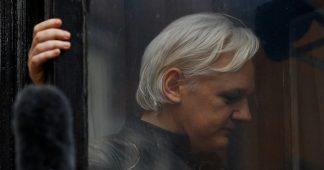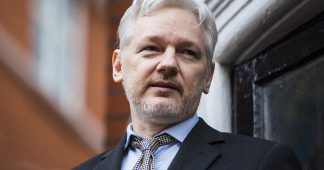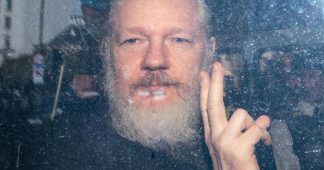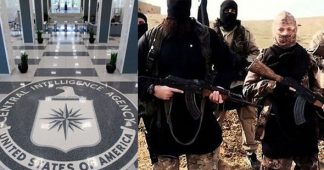26.02.2020
The US government on Monday claimed that charges against Julian Assange were motivated by a reckless disclosure of the identity of sources, and not in retaliation for exposing US war crimes or publishing embarrassing revelations. Mark Lewis QC, speaking for Washington, claimed at Belmarsh Magistrates’ Court that the defendant “is not a journalist”.
Assange’s defence team hit back on Tuesday against claims that the WikiLeaks founder revealed hundreds of sources, names, and identities, when the organisation published Iraq and Afghanistan war logs and US diplomatic cables in 2010 and 2011.
Mark Summers QC, speaking for the defence, told the court on 25 February, that Assange and WikiLeaks “worked tirelessly” with a coalition of news outlets to redact information which might have put US government informants and sources at risk. The prosecution argued the opposite during its opening statement on 24 February.
Defense: Allegation that Assange put people knowingly at risk, which the Prosecution argues justifies separate treatment under the First Amendment, is “obviously false” based on publicly available information – and that is part of the abuse of process of these proceedings.
— Courage Foundation (@couragefound) February 25, 2020
WikiLeaks was part of a harm minimisation redaction process, in collaboration with mainstream and establishment news outlets, as early as November 2010, the court heard on Tuesday. This process involved the US government feeding suggested redactions into the media relationship. In some cases WikiLeaks redacted more than what other mainstream outlets did, Summers detailed.
“The state department was also part of the process”, Summers said, “They gave numbers to [the media collaboration to] redact, which WikiLeaks did, knowing the requests were coming from the US government”. Summers stressed that the US government was and is fully aware of this fact.
This goes directly to support the defence’s claim that the prosecution are acting in “bad faith” when they claimed that Assange is “not a journalist” who “recklessly” put the lives of innocent people at risk. In fact, the prosecution has had to admit that it has no evidence of US sources actually coming to harm due to WikiLeaks publications.
The evidence will show, far from being a reckless, unredacted release, the world knows, every reporter knows and the USG knows is what actually occurred is that one of the media partners published a book in 2011 which published the password to the unredacted materials in a book..
— Courage Foundation (@couragefound) February 25, 2020
“Can it be said, with any sensible view, that the [extradition] request portrays an accurate picture of the situation?”, Summers asked the court rhetorically. “We had many suggestions for redactions which WikiLeaks agreed to”, including names.
Summers noted that it was two Guardian journalists, and not Assange or WikiLeaks, who provided access to the original unredacted US diplomatic cables.
In February 2011, Luke Harding and David Leigh, writers with The Guardian, published a book about the diplomatic cables which contained a password that could be used to unlock the WikiLeaks documents and remove the redactions. Six months later, Summers continued, Assange became aware that internet sites Cryptome and Pirate Bay had discovered the password and used it to decrypt the documents and then publish them in their original form. Assange contacted Cryptome, according to Summers, and “begged” them to stop publicising the unredacted files and take them offline.
Assange then called the US State Department, at the time run by Secretary of State Hilary Clinton, to let them know that other sites had gained access to the unredacted cables which would “imminently” incur a situation in which “lives are going to be put at risk”. The court also heard that this conversation was video recorded at the time and featured in the Laura Poitras documentary Risk.
August 2011 #JulianAssange contacted US State Dept to warn them all the US dip cables would be released, unredacted, by other outlets. Proof positive that neither #Assange nor WikiLeaks recklessly put people's lives at risk by dumping unredaced documents, his defence team says. pic.twitter.com/zIjr7wtybO
— M. A. E. (@MElmaazi) February 26, 2020
“The notion that Assange deliberately published unredacted information is knowingly false”, Summers noted.
Published at sputniknews.com










